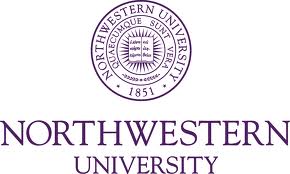Research Interests
My research interests lie in applying methodologies in Optimization, Game Theory, and Stochastic Modeling to strategic decisions in Supply Chain Management and Operations Management. My current focus of research is contract manufacturing and strategic sourcing, especially on supply chain contract in capacity and quality management. I am also interested in the broad applications of these methodologies in Healthcare, Energy, Production and Logistics, Operations Management and Marketing Interface.
Publications and Working Papers
Doctorate Research:
- Production Control and Transfer Pricing in a Two-stage System with Demands of Both Intermediate and End Product, with Izak Duenyas and Seyed M.R. Iravani. Work in Progress.
Abstract: We study the optimal production and inventory control policy in a company with two manufacturing divisions. The second division sells end product that is made using a part provided by the first division. However, the first division also has an external demand for its intermediate product. We consider the optimal production policy and transfer pricing schemes in both the centralized and decentralized system. - Group Warranty Contracts to Cooridinate Assembly Supply Chains with Non-testable Components, with Izak Duenyas and Seyed M.R. Iravani. To be submitted.
 Read this paper.
Read this paper.
Abstract: Recent trends of the electronics manufacturing industry present new challenges to original equipment manufacturers (OEM). On one hand, OEMs are trying to eliminate incoming inspection to reduce time-to-market and manufacturing costs. On the other hand, the increasing product miniaturization makes it harder to detect the faulty component when a product is defective. In this paper, we consider a supply chain where one manufacturer purchases components from different suppliers to assemble a product. The product fails if any of its component fails, but to find the faulty component can be prohibitively difficult. We study group warranty contract to induce suppliers to invest in quality improvement. When information is symmetric and the OEM can contract on his own quality, we show that group warranty contract can achieve the first-best outcome. When there are both testable and non-testable components, we consider a sequential test for testable components, and combine individual warranty for testable components and group warranty for non-testable components. When the OEM's quality is not contractible, both the OEM and the suppliers under-invest in qualities. We then extend our model to the case when there is private quality cost information on the suppliers side, and also consider whether the OEM benefits from the merger of suppliers. Interestingly, we find that the merger of suppliers benefits the OEM when his quality is not contractible, but hurts him in presence of asymmetric cost information of the suppliers. Finally, our numerical study shows that the impact of contractibility is more significant than that of information asymmetry. Therefore, when both issues are present, the manufacturer is likely to prefer a merger of suppliers despite that a merger has opposite effect on contractibility and information asymmetry. - Capacity Option Transfer Rights: Do They Benefit Suppliers? with Izak Duenyas and Seyed M.R. Iravani. Under revision for 3rd round review at Production and Operations Management.
 Read this paper.
Read this paper.
Abstract: In this paper, we consider situations where firms buy options to use the capacity of suppliers. We explore whether suppliers should provide transfer rights with these options such that a firm that cannot use all its purchased capacity, can sell it to another firm that may need the capacity. We define and compare three policies for the supplier to deal with one buyer's unused capacity and another's unfulfilled demand, and we provide managerial insights into when it is optimal for the supplier to allow transfer rights with the capacity options. We find that providing transfer rights to the buyers can be better for the supplier than reserving the transfer rights to itself in a wide variety of situations and characterize conditions under which the three policies are preferable.
- Single Item Lot-Sizing Problem with Minimum Order Quantity, with Chan Seng Pun and Diego Klabjan. Under review at Discrete Optimization.
 Read this paper.
Read this paper.
Abstract: The traditional lot-sizing problem is to find the least cost production lot-sizes in several time periods. We consider the lot-sizing model with both capacity constraints and minimum order quantity requirements. We first show that the lot-sizing problem with linear cost functions, general capacities and minimum order quantities is NP hard. We then show that the problem is polynomially solvable in presence of constant capacities and minimum order quantities over a finite planning horizon. We also identify a polynomially solvable case with general minimum order quantities and infinite capacities. In the case of general capacities with the minimum order quantities, and in the presence of linear holding, backlogging, procurement costs, and a possible fixed component, we exhibit a Fully Polynomial Time Approximation Scheme. - A Spanning Tree-Based Particle Swarm Optimization Algorithm for Transportation Problems with Exclusionary Side Constraints. Proceeding of International Conference on Informatics and Control Technologies (ICT), Dec 2006.
Abstract: We present a spanning tree-based Particle Swarm Optimization (PSO) algorithm to solve transportation problems with exclusionary side constraints. The Prufer number is adopted to represent the candidate solution. We discuss the adaption and implementation of the PSO searching strategy. Numerical experiments, including comparisons with Genetic Algorithm, are used to show the efficiency of the proposed heuristic.
Presentations
- Capacity Option Transfer Rights: When and How Do They Benefit Suppliers?
Nov 13, INFORMS 2011, Charlotte, NC.
- Group Warranty Contracts to Cooridnate Assembly Supply Chains with Non-testable Components.
Invited Talk. Antai College of Economics & Management, Shanghai Jiao Tong University, Shanghai, China, Oct 19 2011.
- Capacity Option Transfer Rights: Do They Benefit Suppliers?
MSOM 2011, Ann Arbor, MI;
INFORMS 2010, Austin, TX;
INFORMS 2009, San Diego, CA.
- Single Item Lot-Sizing Problem with Minimum Order Quantity.
ISMP 2009, Chicago, IL.
- A Spanning Tree-Based Particle Swarm Optimization Algorithm for Transportation Problems with Exclusionary Side Constraints.
ICT 2006, Shenzhen, China.
